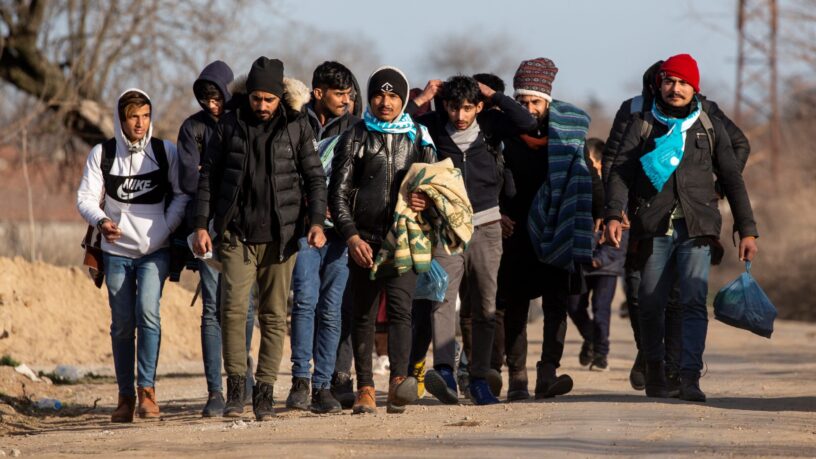Court of Auditors’ report says EU funding has been crucial for millions of refugees in Turkey – but the future of funded projects is uncertain once the money runs out
A report from the European Court of Auditors, ECA, on April 24 said the EU’s aid is beneficial for refugees and hosts in Turkey but its impact and sustainability are not ensured.
“Although the 6-billion-euro Facility for Refugees in Turkey has addressed the needs of refugees and their Turkish host communities, the funded projects are behind schedule, and it is uncertain whether they will be sustained once EU support runs out,” the report wrote.
It added that the EU’s funding for refugees in Turkey “could have achieved greater value for money and shown more impact”. Since 2016, the EU has funnelled 6 billion euros in humanitarian and development aid to the country.
According to Turkish government data, Turkey hosts more than 4 million refugees, including more 3.2 million Syrian refugees, but opposition parties and experts say the real number is likely higher than the official figures. The report noted that many of the refugees are Europe-bound.
ECA member Bettina Jakobsen, who led the auditing report, said the funding was positive overall but there is also another side to the question.
“For various reasons, the projects were significantly delayed. Second, their costs were not systematically assessed. Thirdly, although the planned outputs such as job-trainings or schools were delivered, there was not enough focus on their impact. And fourthly, sustainability of EU interventions and Turkey’s co-ownership is of paramount importance,” Jakobsen said in a press conference.
Jakobsen added that sustainability has so far only been ensured for infrastructure projects but “unfortunately, this is not yet the case for some projects in the education, health and socio-economic support sectors”.
“In 2015, the EU set up the Facility to channel and coordinate 6 billion euros of humanitarian and development aid to the country. The Commission has been managing the aid in the context of Turkey’s economic downturn and deteriorating relations with the EU, also due to backsliding on the rule of law and fundamental rights,” the report added.
Turkey and the EU have been debating a new refugee deal but there has been no concrete agreement.
“It is far from certain what will happen with the projects in Turkey after EU aid runs dry,” Jakobsen said.
Jakobsen also shared the ECA’s recommendations to the European Commission to improve the impact of the EU aid.
“We therefore give four recommendations to the Commission: improve the assessment and monitoring of costs; gather data on education from the Turkish authorities regarding refugees and the host communities; improve the measurement of the impact of projects; and strengthen the sustainability of projects,” Jakobsen said.
The European Court of Auditors was established as the EU’s external auditor in October 1977. Its mission is to improve the way EU finances are managed, and to provide independent assurance that the EU has collected and spent its money according to the rules.
Court of Auditors’ report says EU funding has been crucial for millions of refugees in Turkey – but the future of funded projects is uncertain once the money runs out



